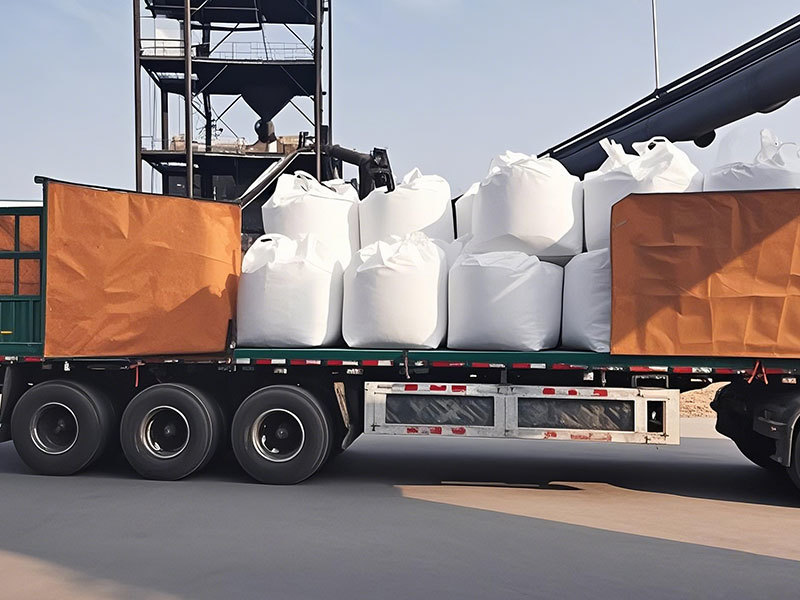Understanding Tech Grade STPP Factories: A Key Component in the Chemical Industry
2025-07-01
---
In the realm of biochemical products, the production of tech grade STPP holds a pivotal role. Sodium tripolyphosphate is a versatile compound widely used as a key additive in various applications, including detergents, food processing, and water treatment. Understanding the nuances of tech grade STPP factories can empower professionals in the chemical industry to make informed decisions regard

---
In the realm of biochemical products, the production of tech grade STPP holds a pivotal role. Sodium tripolyphosphate is a versatile compound widely used as a key additive in various applications, including detergents, food processing, and water treatment. Understanding the nuances of tech grade STPP factories can empower professionals in the chemical industry to make informed decisions regarding procurement, quality control, and application effectiveness.
Tech grade STPP is characterized by its high purity and consistent performance, essential for industries that require stringent quality standards. The manufacturing process typically involves the combination of phosphoric acid and sodium carbonate, which undergoes a series of steps to produce a fine white powder. This meticulous production process ensures that the final product meets the necessary specifications for various applications, particularly in detergents where it functions as a builder to enhance cleaning efficiency.
One of the key attributes of tech grade STPP is its ability to sequester calcium and magnesium ions in hard water. This property improves the effectiveness of surfactants in cleaning formulations, making it a preferred choice among manufacturers. Additionally, in the food industry, STPP is utilized as a preservative and processing aid, helping to retain moisture and enhance texture in food products.
Choosing a reliable tech grade STPP factory is crucial for businesses looking to maintain product quality and compliance with industry standards. Factors to consider include the factory's production capabilities, quality assurance processes, and adherence to environmental regulations. Engaging with a factory that prioritizes these aspects can lead to a more efficient supply chain and ultimately contribute to the overall success of your products.
Moreover, the increasing focus on sustainability has prompted many tech grade STPP manufacturers to adopt eco-friendly practices. This includes sourcing raw materials responsibly and implementing waste reduction strategies during production. As industry professionals, aligning with factories that champion sustainability not only enhances your brand's reputation but also meets the growing consumer demand for environmentally conscious products.
In conclusion, tech grade STPP factories play an indispensable role in the chemical industry, particularly within the biochemical sector. By understanding the production processes, applications, and quality considerations associated with tech grade STPP, professionals can make strategic decisions that enhance their operations and product offerings. As the industry continues to evolve, staying informed about advancements in manufacturing practices will be key to maintaining a competitive edge.
In the realm of biochemical products, the production of tech grade STPP holds a pivotal role. Sodium tripolyphosphate is a versatile compound widely used as a key additive in various applications, including detergents, food processing, and water treatment. Understanding the nuances of tech grade STPP factories can empower professionals in the chemical industry to make informed decisions regarding procurement, quality control, and application effectiveness.
Tech grade STPP is characterized by its high purity and consistent performance, essential for industries that require stringent quality standards. The manufacturing process typically involves the combination of phosphoric acid and sodium carbonate, which undergoes a series of steps to produce a fine white powder. This meticulous production process ensures that the final product meets the necessary specifications for various applications, particularly in detergents where it functions as a builder to enhance cleaning efficiency.
One of the key attributes of tech grade STPP is its ability to sequester calcium and magnesium ions in hard water. This property improves the effectiveness of surfactants in cleaning formulations, making it a preferred choice among manufacturers. Additionally, in the food industry, STPP is utilized as a preservative and processing aid, helping to retain moisture and enhance texture in food products.
Choosing a reliable tech grade STPP factory is crucial for businesses looking to maintain product quality and compliance with industry standards. Factors to consider include the factory's production capabilities, quality assurance processes, and adherence to environmental regulations. Engaging with a factory that prioritizes these aspects can lead to a more efficient supply chain and ultimately contribute to the overall success of your products.
Moreover, the increasing focus on sustainability has prompted many tech grade STPP manufacturers to adopt eco-friendly practices. This includes sourcing raw materials responsibly and implementing waste reduction strategies during production. As industry professionals, aligning with factories that champion sustainability not only enhances your brand's reputation but also meets the growing consumer demand for environmentally conscious products.
In conclusion, tech grade STPP factories play an indispensable role in the chemical industry, particularly within the biochemical sector. By understanding the production processes, applications, and quality considerations associated with tech grade STPP, professionals can make strategic decisions that enhance their operations and product offerings. As the industry continues to evolve, staying informed about advancements in manufacturing practices will be key to maintaining a competitive edge.
PREVIOUS:


 TESFA STPP
TESFA STPP